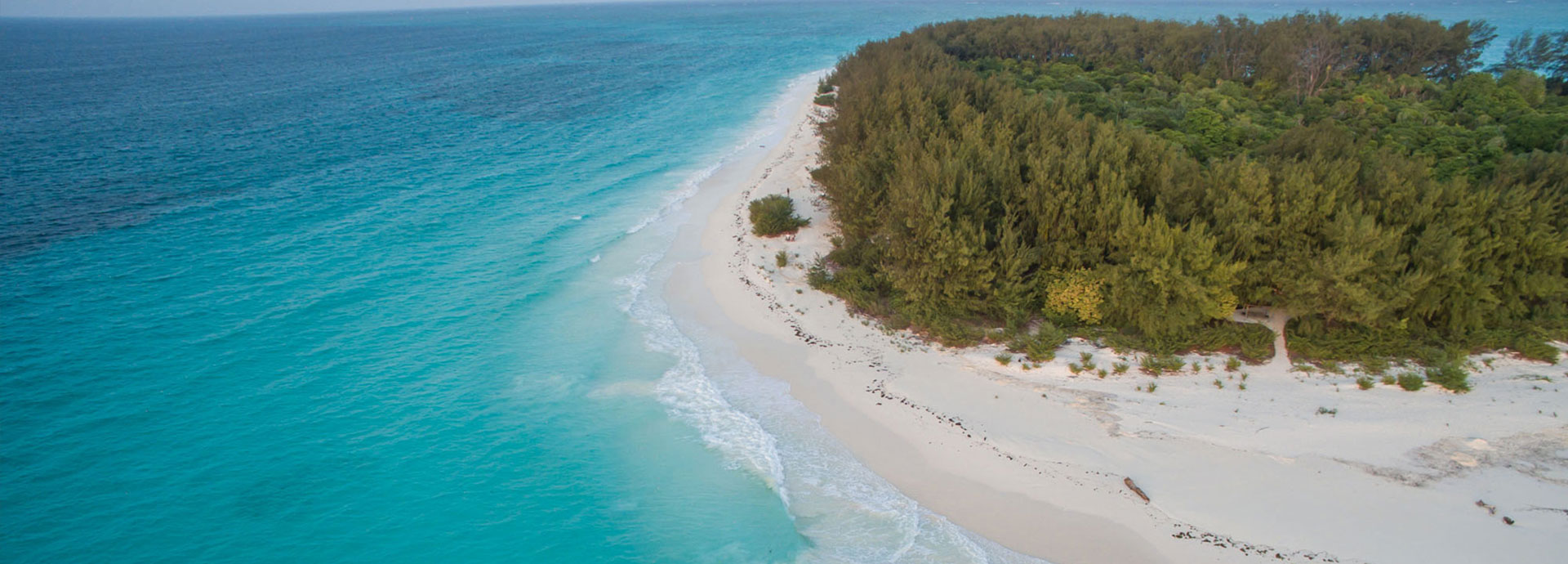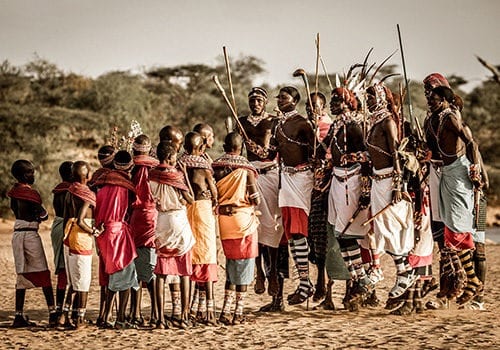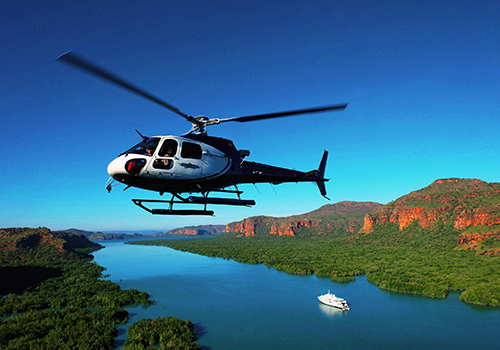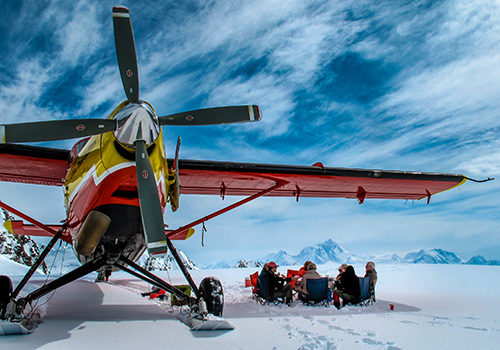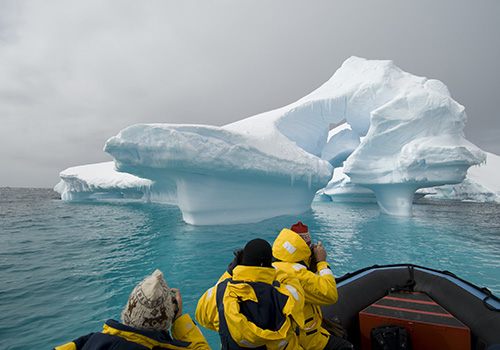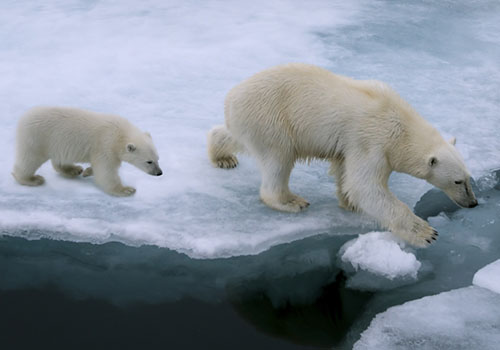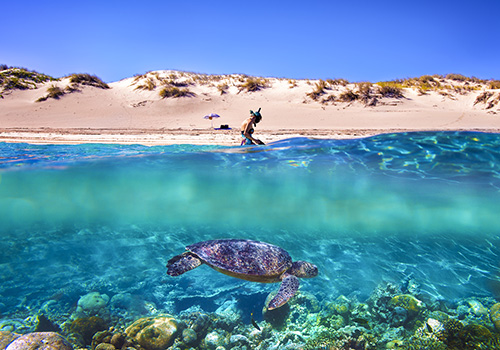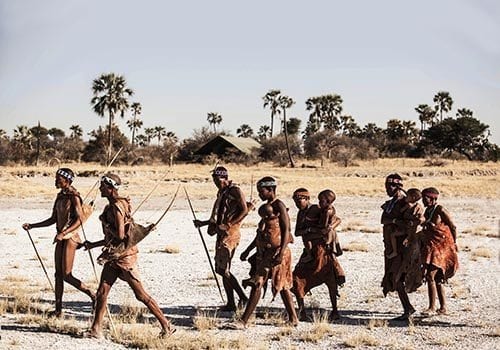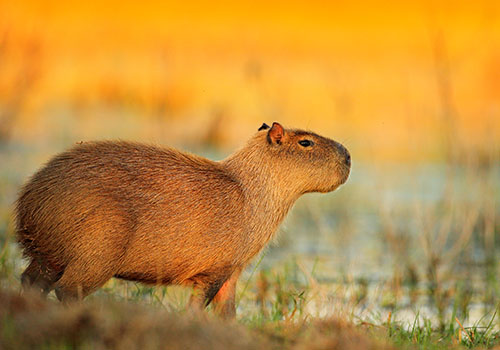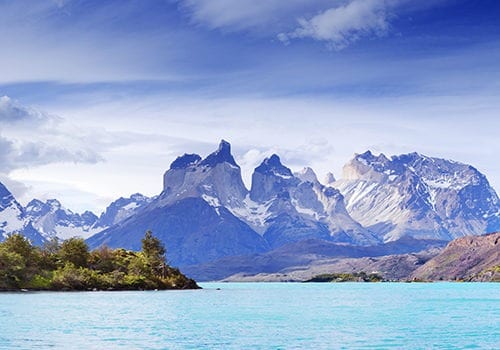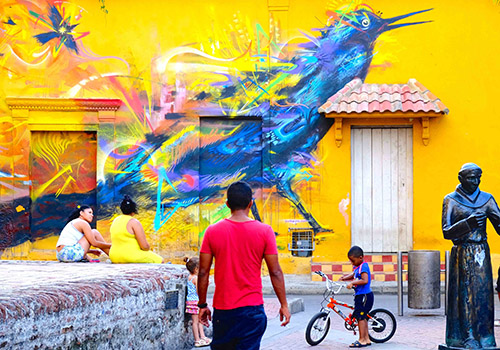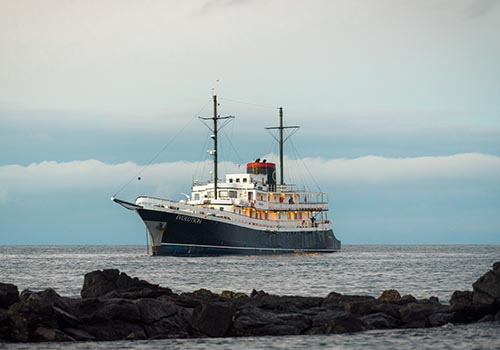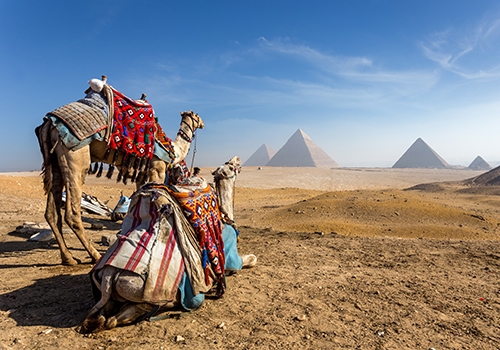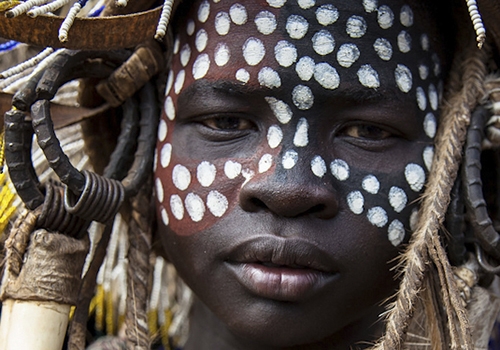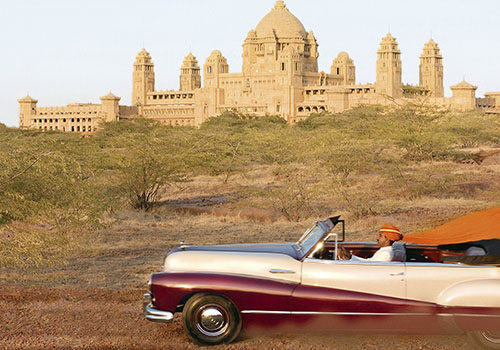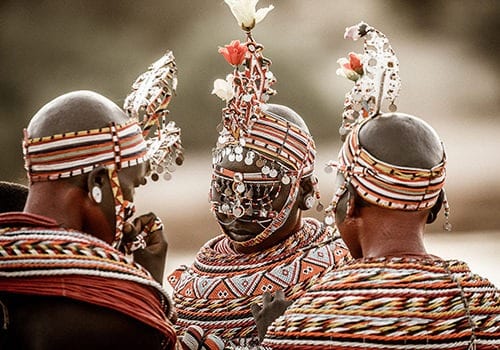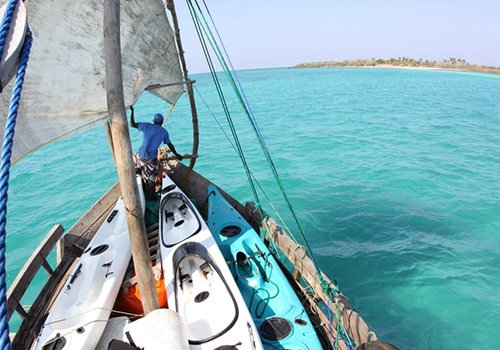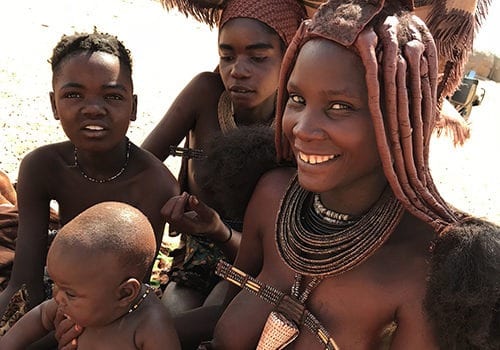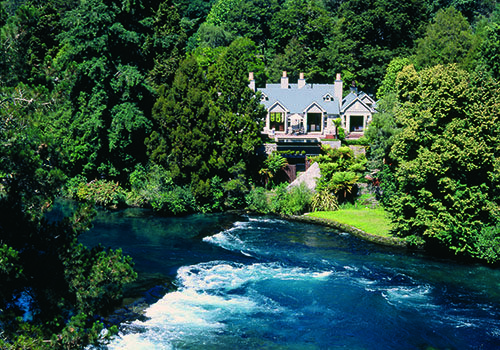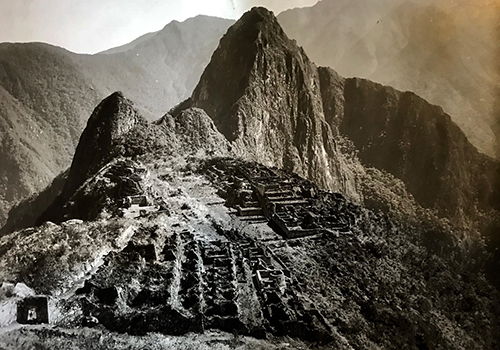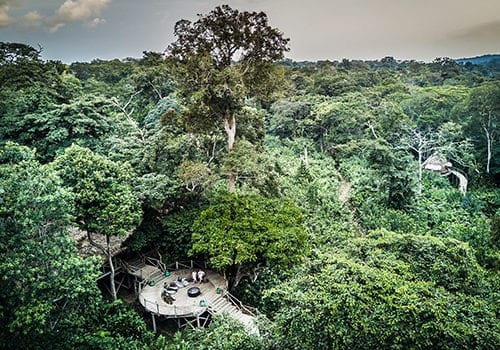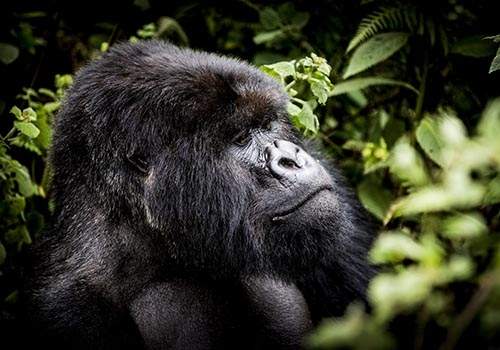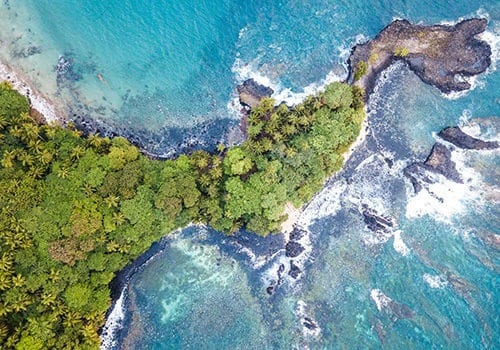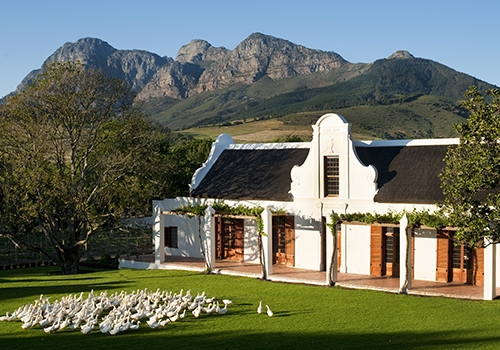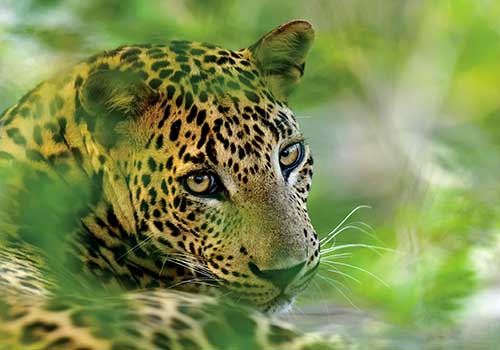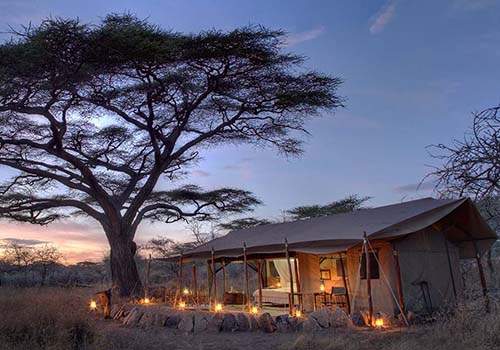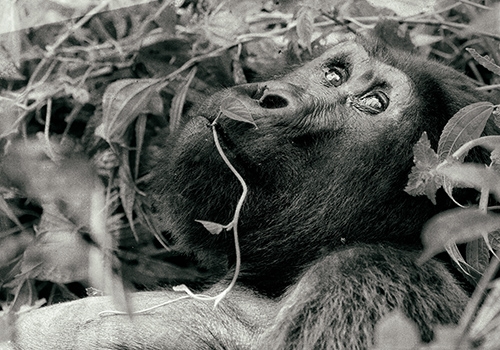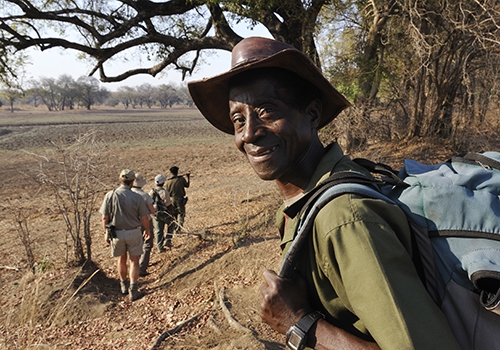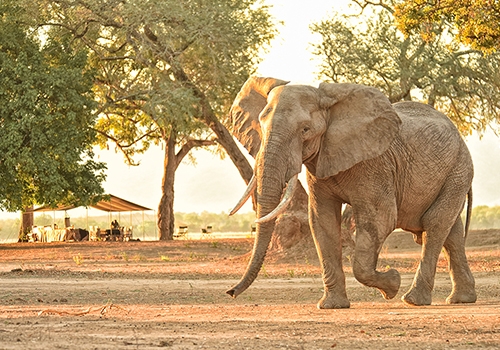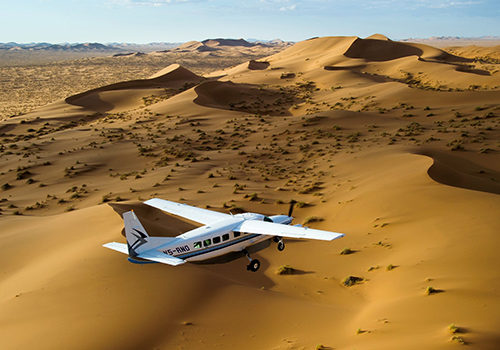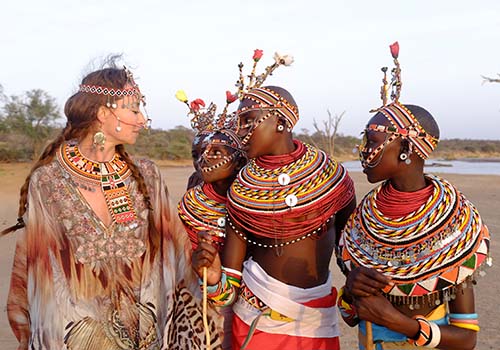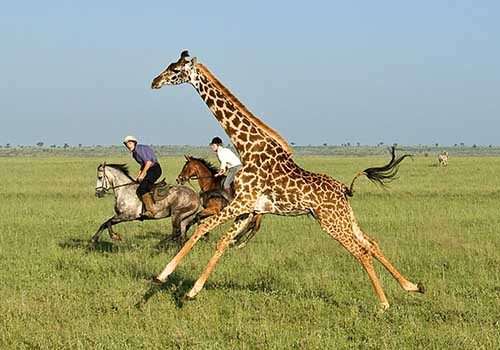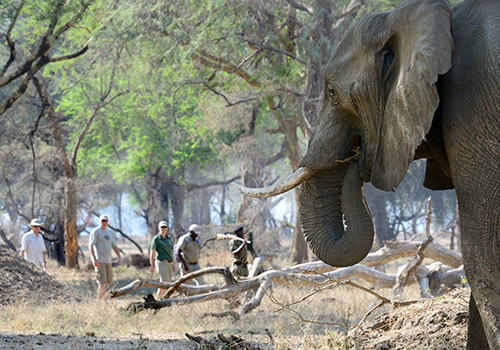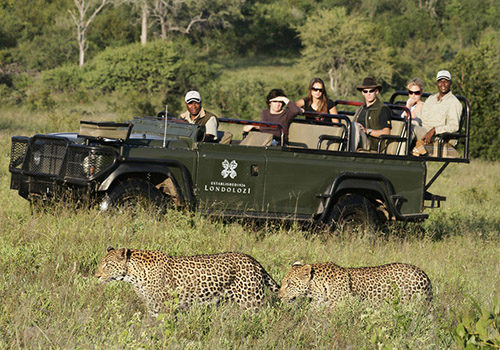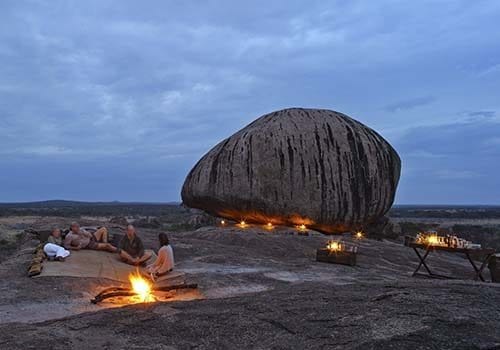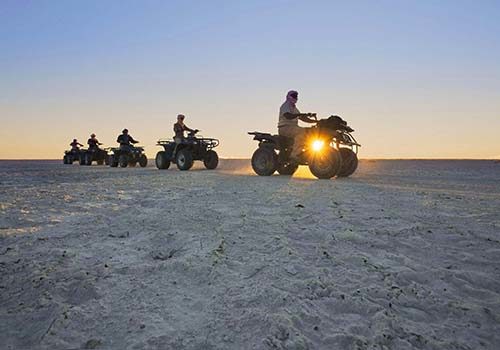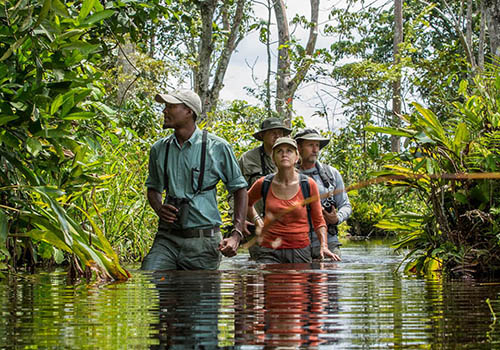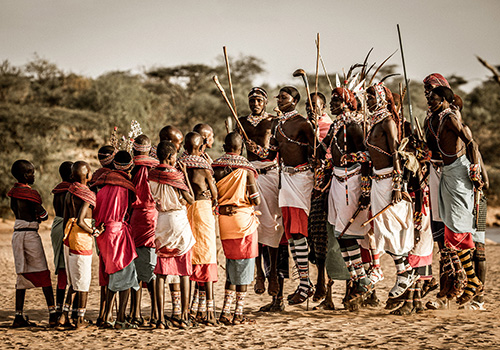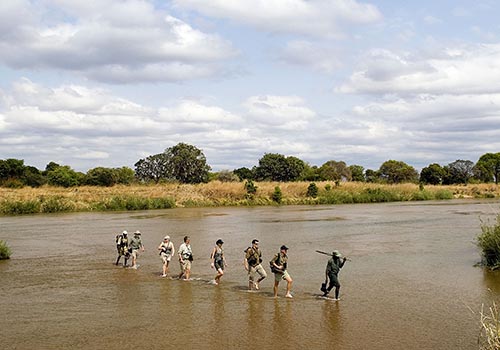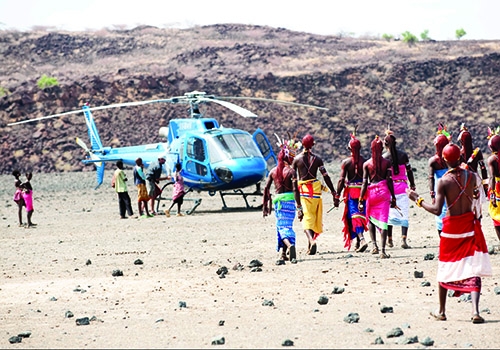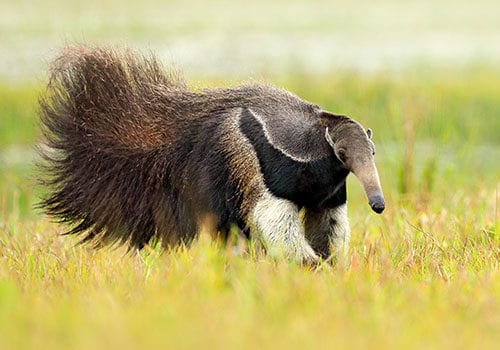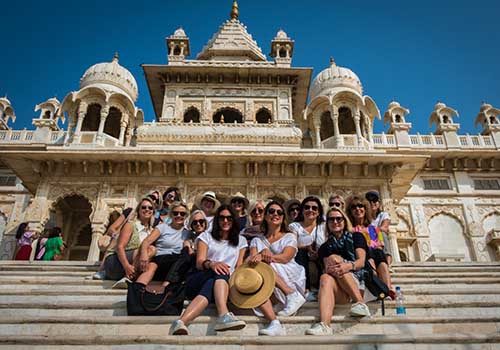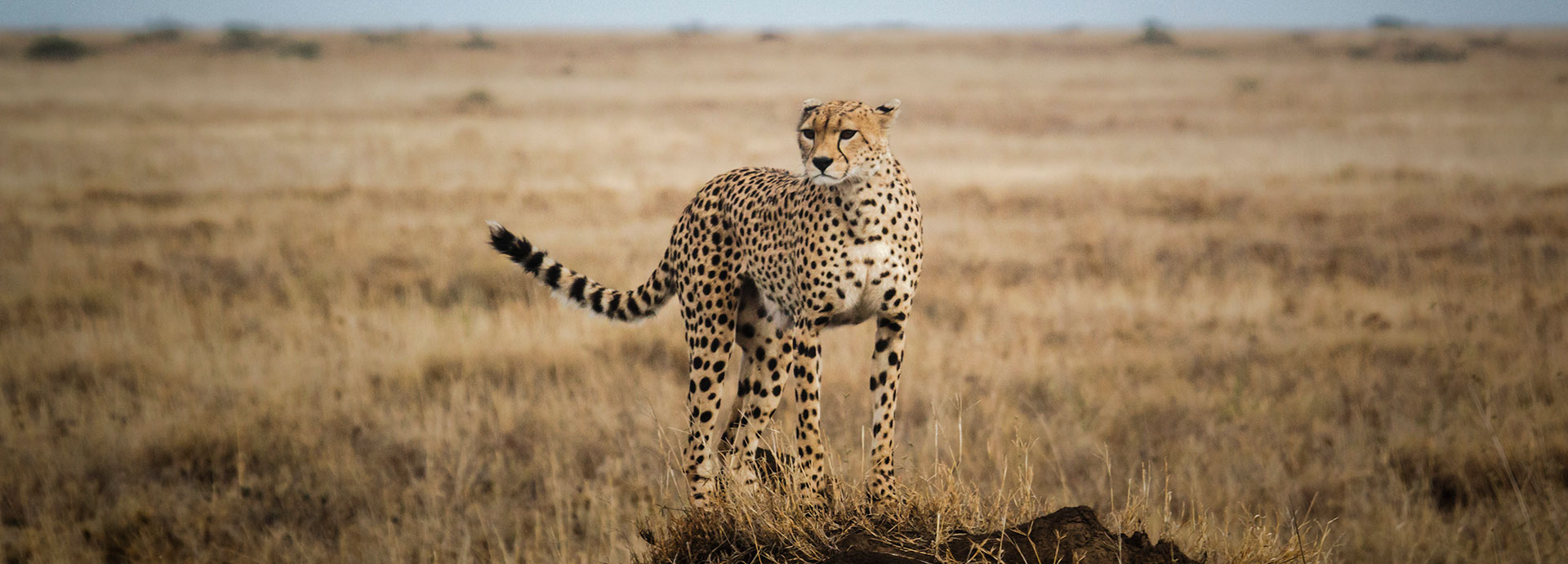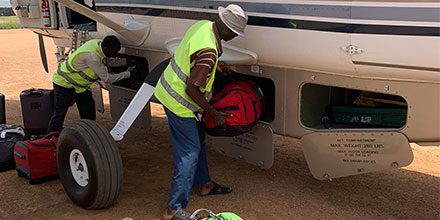
KEY INFORMATION TO PREPARE FOR YOUR JOURNEY
Nestled along the Indian Ocean coastline, Tanzania shares its borders with Kenya, Uganda, Rwanda, Burundi, the Democratic Republic of Congo, Zambia, Malawi, and Mozambique. Tanzania is a treasure trove of tourist highlights that cater to a diverse range of interests.
One of its most renowned attractions is Mount Kilimanjaro, the highest peak in Africa and a magnet for adventurers seeking to conquer its majestic heights. For wildlife enthusiasts, the Serengeti National Park offers unparalleled safari experiences, especially for the Great Migration where millions of wildebeests and other animals traverse the plains in search of water and grazing land. The Ngorongoro Crater, a UNESCO World Heritage Site, is another natural wonder that draws visitors. This expansive caldera is a self-contained ecosystem teeming with diverse wildlife, providing excellent game viewing opportunities.
Tanzania’s stunning coastline is adorned with pristine beaches and crystal-clear waters, making places like Zanzibar a tropical paradise for relaxation and water-based activities. For those intrigued by culture and history, Stone Town in Zanzibar presents a blend of Swahili, Arabic, Indian, and European influences, evident in its architecture, markets, and labyrinthine streets.
This information will assist in preparing for your departure and includes helpful travel hints for when you are there. For detailed pre-departure information for Africa on the whole please refer to our AFRICA pre-departure information.
PLEASE NOTE: All pre-departure information was correct at the time of writing, but should be used as a guide only since requirements can change at short notice and without warning. Consult Smart Traveller or contact the Tanzanian High Commission or the appropriate authority prior to departure to confirm all details.
AT A GLANCE
TANZANIA KEY FACTS
Time: GMT +3 hours | AEST -7 hours
Capital: Dodoma
International Airport(s): Julius Nyerere International Airport (DAR)
Official languages: Swahili and English as well as numerous indigenous languages
Religion: Christianity is the largest religion in Tanzania, with a substantial Muslim minority
Electrical Current: 220V | UK 3 square pin – Type G
Currency: Tanzanian Shilling | TZS
Australian High Commission in Nairobi: Riverside Drive Nairobi | T: (+254 20) 427 7100 | E: Consular.Nairobi@dfat.gov.au | www.kenya.highcommission.gov.au
Visa: Yes – currently required for Australian & New Zealand passport holders – refer to ‘Passport and Visa Requirements‘ for further details..
Ramadan, the spiritual month of Islamic Religion, is celebrated by Muslims in Tanzania. Ramadan corresponds to the 9th month of the Muslim calendar with the end of Ramadan culminating in Eid al-Fitr – a three day holiday and celebration. Ramadan is predominantly celebrated along the coast of Tanzania and is unlikely to affect your safari.
USEFUL WEBSITES
Smart Traveller – https://www.smartraveller.gov.au/destinations/africa/tanzania
Travel Doctor-TMVC – https://www.traveldoctor.com.au/destinations/tanzania
Consulate of Tanzania – https://tanzaniaconsul.com/
PUBLIC HOLIDAYS
January 1: New Year’s Day
January 12: Zanzibar Revolution Day
February/March: Ramadan. Dates change annually. Upcoming Ramadan dates: 10 March – 9 April 2024 | 28 February – 30 March 2025
Friday before Easter: Good Friday
Monday after Easter: Easter Monday
End of Ramadan: Eid al-Fitr*
April 26: Union Day
May 1: Labour Day
Feast of the Sacrifice: Eid al-Adha*
August 8: Farmer’s Day
October 14: Mwalimu Nyerere Day
December 9: Independence Day
December 25: Christmas Day
December 26: Boxing Day
Note: If a public holiday falls on a Sunday the following Monday shall be taken as a public holiday.
*As both of these holidays are based on the Islamic lunar calendar the precise date is determined by the moons cycle.
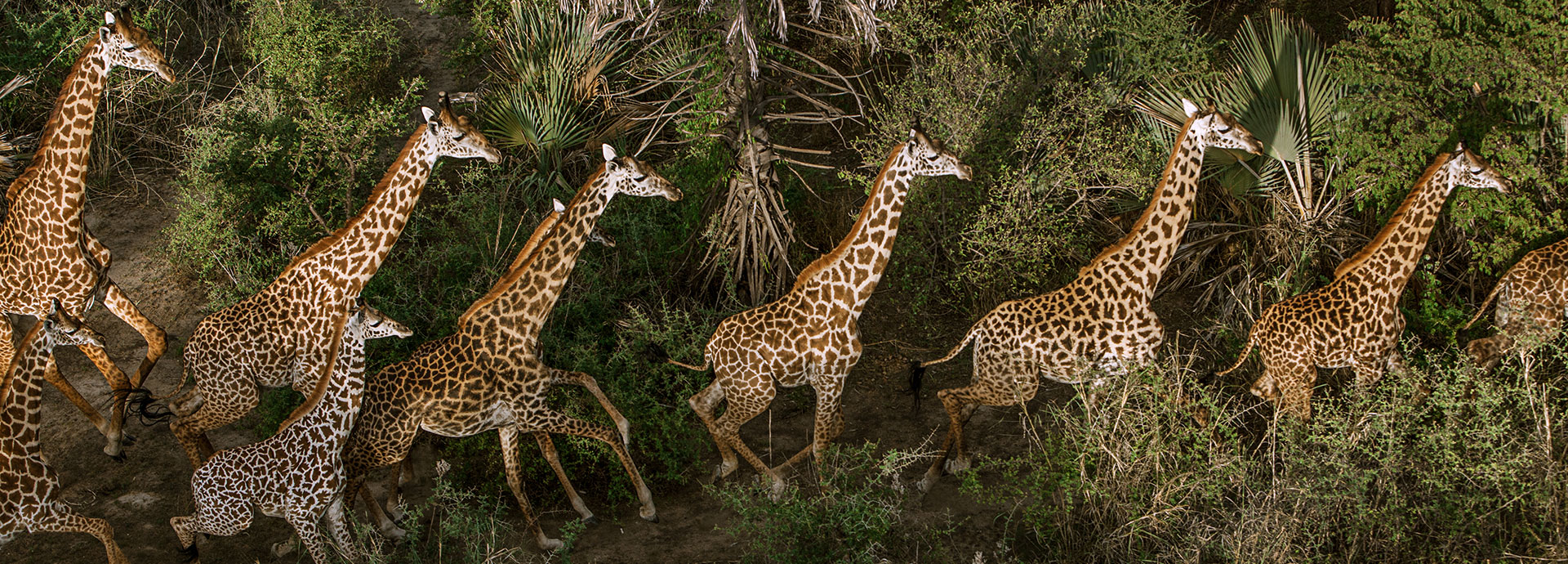
PASSPORT & VISA REQUIREMENTS
PASSPORTS
Your passport must be valid for at least six months after your return to Australia and have at least two blank pages for every entry and country you intend to visit on your journey. If your passport does not meet these requirements you must obtain a new one. The Australian Passport Office website is www.passports.gov.au.
It is a wise precaution to carry a photocopy of your passport separately and leave a copy at home. This will aid authorities in processing a new passport should yours get stolen or lost.
If you have dual citizenship and more than one passport, we strongly recommend that you use only one of these during your travels, as in some countries it is considered illegal to have two or more passports. Be sure to use the same passport on entry and exit from a country, and never surrender your passport.
If your passport name is different to your commonly used name, advise us of this and ensure your airline reservations match those of your passport name.
VISAS
Australian and New Zealand passport holders require a Tourist Visa to enter Tanzania
SINGLE ENTRY VISA
A single entry visa costs US$50 and is valid for 90 days. These can be obtained on arrival or online prior to departure.
All visa applications must be made on the official e-visas website. We can provide detailed instructions for this process if required – just ask. The official support email address is visatanzania@immigration.go.tz
We highly recommend that you apply for your visa online prior to travel, rather than on arrival, to avoid extended delays at the airport. The online visa can take up to 2-3 weeks to be issued so please apply for your e-Visa as early as possible to ensure you receive it in time.
Note: that ’East Africa Tourist Visas’ are not valid for travel in Tanzania. These allow tourists to travel between Kenya, Uganda and Rwanda only.

CLIMATE, WEATHER & SEASONS
CLIMATE
Tanzania tends to have a temperate to tropical climate all year round but due to its sheer size the climate varies considerably within it. However, generally the main rainy season, or the ‘long rains’, come in March, April and May. Afternoon tropical downpours are the norm which are heavier and more predictable on the coast and islands. The humidity is high and daily temperatures are in the low-mid 30s.
The long dry season lasts throughout June, July, August, September and October, when rainfall is unusual. Temperatures vary hugely with altitude and location, but it’s usually a fine, clear sky and sunny weather – it’s a great time to visit Tanzania. During November and December there’s another rainy season: the ‘short rains’. These are much lighter than the main rains and far less reliable. It then normally dries up for
KEY SEASONS
- March to May: Long rains and migration heading north into the western Serengeti
- June to October: Peak season and migration moving into the northern Serengeti and Maasai Mara
- November to December: Short rains and migration heading south
- January to March: Calving season in the southern Serengeti

| SERENGETI | JAN | FEB | MAR | APR | MAY | JUN | JUL | AUG | SEP | OCT | NOV | DEC |
|---|---|---|---|---|---|---|---|---|---|---|---|---|
| Temperature (°C) | 16-29 | 16-29 | 16-29 | 16-28 | 11-23 | 16-27 | 15-27 | 14-26 | 15-28 | 16-29 | 16-28 | 16-28 |
| Rainfall (mm) | 50-100 | 50-100 | 100-150 | 150-200 | 50-100 | 0-50 | 0 | 0-50 | 0-50 | 50-100 | 100-150 | 100-150 |
| NGORONGORO | JAN | FEB | MAR | APR | MAY | JUN | JUL | AUG | SEP | OCT | NOV | DEC |
|---|---|---|---|---|---|---|---|---|---|---|---|---|
| Temperature (°C) | 11-27 | 11-28 | 09-26 | 10-25 | 11-23 | 11-23 | 10-24 | 10-25 | 09-26 | 09-26 | 09-26 | 08-26 |
| Rainfall (mm) | 100-150 | 50-100 | 100-150 | 200-250 | 50-100 | 0-50 | 0 | 0 | 0 | 0-50 | 100-150 | 100-150 |
| ZANZIBAR | JAN | FEB | MAR | APR | MAY | JUN | JUL | AUG | SEP | OCT | NOV | DEC |
|---|---|---|---|---|---|---|---|---|---|---|---|---|
| Temperature (°C) | 13-28 | 14-28 | 15-27 | 16-25 | 15-23 | 13-23 | 12-22 | 12-23 | 13-25 | 14-27 | 14-27 | 14-27 |
| Rainfall (mm) | 50-100 | 50-100 | 150-200 | 350-400 | 250-300 | 50-100 | 0-50 | 0-50 | 0-50 | 0-50 | 150-200 | 100-150 |
LUGGAGE & PACKING
LUGGAGE
Charter flight companies and some safari operators impose strict luggage restrictions.
The maximum luggage weight specific to your journey is 15 kgs including camera equipment and hand luggage for travel through Tanzania. Your bags must be soft-shelled and malleable and not exceed the maximum dimensions of 62cm x 30cm x 25cm.
If your luggage does not meet the criteria the charter companies will either leave your luggage behind, charge you for an extra seat onboard the aircraft (if one is available) or charter your bags separately at your cost. The charter planes have restricted space onboard, and, above all, the regulations are in place for your safety.
And if you are wondering how to pack everything in and keep it under 15kgs read our blog – How to pack for a safari and keep it under 15kg
For further information on luggage and packing please refer to our AFRICA pre-departure information.
CHARTER FLIGHTS
The luggage storage on many charter flights across Africa looks like this:
The weight limit is a strict safety requirement to ensure the balance and carrying capacity of small aircraft.
HEALTH & VACCINATIONS
VACCINATIONS
It may be necessary to take medical precaution prior to, and whilst travelling. As we are not qualified to offer advice, we recommend you contact your GP or the Travel Doctor-TMVC who have the most up‐to-date information available. Requirements are highly personal depending on your health profile and the activities in your itinerary. Some vaccinations must be given well in advance of travel, so we suggest seeking medical advice as soon as you start to plan your trip. Be sure to ask what vaccinations or medications may be required to enter Tanzania and to re-enter Australia.
You can also refer to SmartTraveller for a guide as to what may be required, however you should always seek professional medical advice before travelling.
For further information on health and vaccinations please refer to our AFRICA pre-departure information.
INSURANCE & AMREF FLYING DOCTORS
INSURANCE & AMREF FLYING DOCTORS
You should ensure you have comprehensive travel insurance before you leave for any destination. When travelling in Tanzania with The Classic Safari Company you will additionally have AMREF cover.
WHAT IS AMREF FLYING DOCTORS COVER FOR?
Amref Health Africa (formerly the African Medical and Research Foundation) is the largest African health development non‐governmental international organisation based in Africa and is the leading African‐based aero‐medical and health assistance provider. AMREF is offers a 24hr emergency contact centre, the best in‐flight care and equipment, the fastest response times and are considered the most reliable. As many of safari camps and lodges in East Africa are located in extremely remote areas it is imperative that, in the unfortunate case of a medical emergency, you are able to reach a well-equipped hospital fast, with expert care en route. And that is where AMREF steps in.
Whilst most good travel insurance policies will include medical evacuation cover, inevitably emergencies arise out of hours , and there are often delays whilst (mandatory) authority is sought from your chosen international medical insurer. This can mean the difference between life and death. As a result most, if not all, safari operators will not accept clients on any of their itineraries, or in their camps or lodges, who are not covered for medical evacuation by a flying doctor membership, regardless of whether your travel insurance policy also covers this. The cost for AMREF cover is therefore automatically included in the cost of your itinerary designed and booked by The Classic Safari Company.
MONEY MATTERS
CURRENCY AND EXCHANGE
Tanzania’s currency is the Tanzanian Shilling (TZS) which is divided into 100 cents. Australian dollars cannot be exchanged for Tanzanian Shillings so travel with US dollars that may then be exchanged at banks, bureau de change and at some hotels.
It’s best to take a mixture of money – credit card, debit card or travel cash card, plus cash just in case. Small denominations of USD are advisable – especially for tipping. If all else fails, have someone you can depend on who will make an emergency transfer of funds. USD is widely accepted and often preferred to TZS so we recommend travelling with plenty of USD.
ATM machines are available in most cities & towns, are NOT widely available beyond that so do rely on these as your sole source of funds. Please be vigilant if you do withdraw cash.
Major international credit cards such as Visa and Mastercard are widely accepted. AMEX is not so popular and in some instances is not accepted at all. Please note that you need to take your physical credit card, and you need to know your PIN number, as not all places will allow you to ‘tap’. In some cases you may also be asked to sign.
It is recommended that you DO NOT change money on the black market as you are more likely to receive a lower rate of exchange or fake notes.
TELL YOUR BANK
We highly recommend you advise your bank of your destinations and travel dates. This should prevent any of your transactions being deemed as ‘out of the ordinary’ (and possibly stopped) due to their unexpected location.

POWER, TECH & PHOTOGRAPHY
POWER
There are basically two main voltage systems used around the world: 110 Volt ‐ USA, Canada, Spain & Japan 220 Volt ‐ the rest of the world. In simple terms, the power supply available at the socket is roughly twice as powerful in 240V countries as in 110V countries.
The voltage in Tanzania is 220 Volts, therefore if you wish to use any electronic devices from Canada, the US or Japan you’ll need a voltage converter AND a plug adapter. Australia operates a 220V currency and therefore you only require an adapter for Australian appliances.
The adaptor you will need for Tanzania is a TYPE G or, alternatively you may prefer to invest in an International Travel Adaptor that provides you with more than one option.
Many adaptors also have a USB port so you can plug your smart phone, or I‐product directly into the adaptor.
For the latest & most up to date information about voltage and what adaptors to travel with refer to: www.korjo.com
ADAPTORS
Tanzania uses a 220V electrical current and a type G socket (UK 3 square pin)

